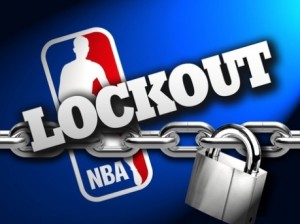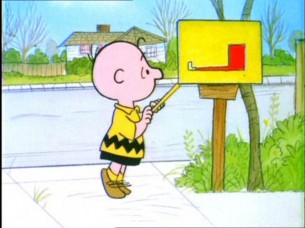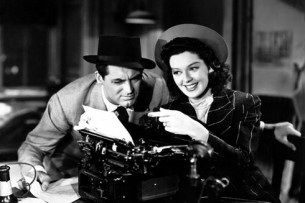The National Basketball Association lockout is over, and what may seem like a run of the mill sports story of high stakes brinkmanship is actually akin to a natural disaster sending economic impacts throughout local economies across the US.
At its heart the NBA lockout was an exercise of kabuki theater between employees demanding a piece of the value they create and owners taking in enough to cover the risk they take on and turn a profit, but around it were many stakeholders who depend on the NBA season for jobs, local commerce and taxes.
What Happened and How it Started
The dispute over wages between owners and players began nearly two years ago in January 2010. Fans took little notice while the NBA season was still under way and all parties had little doubt that an agreement would be reached before the next season.
Citing declining revenue as justification, NBA owners proposed a new collective bargaining agreement which would cut players’ share of basketball-related income from 57% to 50%, establish a “hard” salary cap, and reduce player contracts to a four year maximum.
The Players Union met with league owners on cordial terms over the All Star Break in February 2010, but rejected the terms, setting in motion over a year of offers and counteroffers.
At the heart of the matter was an estimated $2.2 billion in player compensation and $4.2 billion in league revenues.
Both parties failed to reach an agreement, and by summer 2011 Commissioner David Stern threatened a lockout and starts to cancel games for the season.
When it became clear the season was in jeopardy, several mayors of NBA cities wrote a letter to the Association and the Players Union to end the lockout, but it was too late.
Economic Impacts
When the first two weeks of the season were canceled in October, some 100 games were scrapped for an estimated loss of more than $83 million in ticket sales. Local businesses in Oklahoma City, Indianapolis, and San Antonio experienced loss of revenue and stalled job development.
Former Oklahoma City mayor, Ron Norick, who helped bring the Oklahoma City Thunder from Seattle, estimated loosing nearly a million dollars in revenue per game.
Indianapolis risked losing up to $55 million, another $17.8 million in tax revenue, and 909 full-time jobs if the Pacers franchise lost an entire season, according to a 2010 study that looked at scenarios if the team were to relocate.
Bexar County, Texas will still collect $1.2 million in rent from the San Antonio Spurs, but locals have already felt the impact of fans spending less.
It’s a similar story in Portland, Oregon where a stadium usher for the Trailblazers is having to find alternatives to the $11/hour job he once could count on.
The list goes on an on as many cities had a lot at stake, according to data complied by Forbes and reported by The Atlantic: “Twenty three NBA franchises in markets with more than one major-league sports club lost a combined $11 million in total value between 2009 and 2010. The seven NBA-only market teams? They saw a combined $64 million spike in value during the same stretch, with six of the seven teams increasing or maintaining their 2009 values.” In short, while only two months were lost, a fraction of this has far reaching consequences.
To be fair, some have argued the lockout’s impact has been overstated and has no effect on local economies, but it’s hard to argue with the real stories of the individuals affected.
Real people affected
Scott Noguiera owns a Boston sports bar near the Celtics’ home at TD Banknorth Garden. The loss of NBA games has meant he hasn’t hired the eight staffers he usually brings on each season for game days. Noguiera tells CNBC he is also concerned about bringing in revenue to pay down debt and worried he won’t be able to stash away money that normally gets him through the slow summer months.
Game day employees at Madison Square Garden reported they have been losing $75 to $250 per week in missed income, according to workers interviewed by ESPN.
The Community Food & Outreach Center in Orlando, Florida saw a rise in need from out of work citizens connected to seasonal jobs.The food bank reached out to families like that of Orlando Magic stadium usher, Aaron Clark, a 52-year-old husband and father of three who told the Orlando Sentinel he depends on his earnings to buy groceries and was already struggling.
Various teams have been shedding personal in routine layoffs. The training staff of the Los Angeles Lakers was downsized over the summer and last month the stadium audio/video teams in Memphis, Tennessee shared the same fate.
After Thanksgiving, talks resumed between players and owners and over the weekend a deal was reached to end the five month lockout.
Deal reached, lockout ended
Both sides had to give up concessions in the end, but the general consensus seems to be that the owners came out on top with little to complain about.
Owners will have to share revenue, ensure guaranteed contracts and grapple with luxury tax penalties, imposed on teams with high payrolls, but according to The LA Times, they’ll still come out ahead as players have essentially taken a 12% pay cut by reducing their share of income from 57% to 50% which breaks down to nearly $3 billion over 10 years.
Some of the league’s fans and players took to the social spear to express their excitement.
Jeremy Lin of the Golden State Warriors kept it simple on his Facebook wall, “I HAVE A JOB AGAIN!!! yesssssssssss.”
NBA star Kevin Durant reacted in similar fashion on Twitter, “If this is true I am bouta go wake my mom n grandma up and put on a suit and thunder hat and cry! Please be true.”
Film director and noted New York Knicks fan, Spike Lee, shared a similar sentiment with his Twitter followers, “WAKE UP ORANGE AND BLUE. NEW YAWK KNICKERBOCKERS ARE BACK. GONNA PRACTICE SOME SCREAMING. MY VOCAL CORDS ARE OUT OF SHAPE. I WILL BE READY XMAS.”
What’s next
Under the deal the NBA will have a 66-game regular season with three games scheduled for opening day on December 25th.
Reaction around the league and in the press has been optimistic, but there are reservations on whether fans will return in droves from the onset or slowly trickle in as they did after the last lockout 13 years ago.
Fans in Boston weren’t cheering the news, “To tell you the truth, I kind of just want them to cancel the season,’’ said Adam Kelberman of Newton, to Boston.com. “At this point, it’s a waste.’’ Others were more disenfranchised and had given up their season tickets “because they don’t care anymore,’’
It remains to be seen what the ultimate lasting impact the lockout will have or how many, if any, employees will be rehired as the season gets prepared for a Christmas tip-off.


